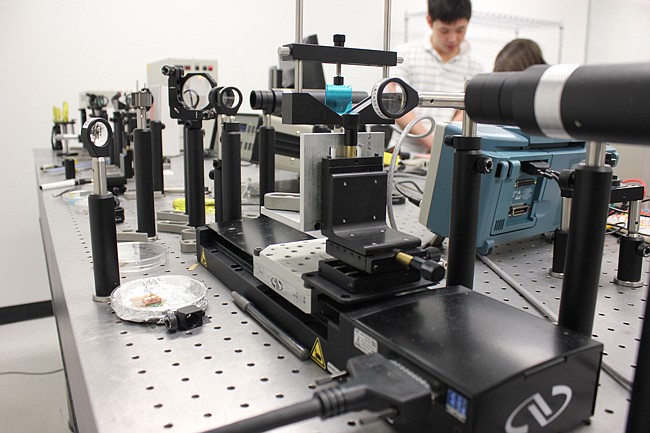- October 23, 2024
-
-
Loading

Loading

While Florida has shown some gains in number of jobs held with a slowly decreasing unemployment rate, workers are being paid the same or less than they were long before the recession.
The numbers don’t lie — recent reports show Central Florida is adding jobs, and in some industries faster than the state. The Orlando-Kissimmee-Sanford Metropolitan Statistical Area has been gaining jobs over the year for 39 consecutive months after losing jobs for more than two years, according to data from the Florida Department of Economic Opportunity. In August, the region’s jobless rate was down 2 percentage points from 8.6 percent a year ago and was 0.5 percentage point lower than the state.
And the annual job growth rate in August 2013 was 1.9 percent, faster than the state’s 1.7 percent. The top two growing industries were in leisure and hospitality and trade, transportation and utilities.
And while that’s a positive for the area’s economic growth, its workers are still struggling to gain a living wage. A September 2013 “State of Working Florida” report released by Florida International University’s Center for Labor Research and Studies concluded that most workers have not seen any upward change in wages over the last 12 years, and with a continually rising cost of living, the standard of living for the average Central Florida resident has dropped dramatically.
“In fact, since 2000, Florida’s employment rate, median hourly wage, and the average amount of hours worked declined by 4.99 percent, 4.34 percent, and 3.11 percent respectively,” the report read. “At the same time, the poverty rate, inequality, and consumer prices (particularly housing, food and transportation) increased dramatically by 46.84 percent, 13.66 percent, and 33.84 percent respectively.”
In 2011, 22.60 percent of Floridians were in or near poverty — a total of 1,044,515 Floridians — and poverty increased by a staggering 46.84 percent between 2007 and 2011, an annual rate of 10.15 percent, according to the report.
Most jobs in Florida are in the private sector service-providing industries, offering low wages with little or no benefits, researchers said.
People have had to come to terms with downsizing their salaries and expectations, said Howie Appel, executive director of ProNet Career Resources, a business aimed at helping professionals who are 55 and older find jobs.
“My opinion is that everybody is talking about a lot of jobs, and many of these jobs out there are low- to mid- wage,” he said. “The people have had to accept the fact that if they were being paid $50,000 a year, they now have to seriously consider jobs at $30,000 a year or even less, and this is frustrating.”
For job search help, check out Workforce Central Florida at workforcecentralflorida.com. Howie Appel with ProNet Career Resources can help with resumes and job connections. Go to pronetcareerresources.org for more information.
Appel experienced the recessions’ effects personally. Once a successful corporate recruiter in the engineering field, his name was on the list when jobs were cut in 2009. He now supports himself and his wife, who is unable to work due to illness, on social security, retirement funds and four “fledgling businesses.”
“I’m struggling,” he said. “It’s very tiring; it’s very challenging.”
There are bright spots in Central Florida’s economic future. The Medical City at Lake Nona continues to bring higher paying jobs to the area, and Verizon will contribute 750 jobs when it opens its finance center in Lake Mary. Looking to the future can be tough for people who’ve been out of work for more than a year, though.
“These jobs aren’t happening today; we need them today,” Appel said.
But through all the negatives, there are local entrepreneurs who have created jobs in the past few years. Sarah Katsandris expanded her Forema Boutique from one store in Ft. Meyers to another location in Winter Park. She said her loyal customers are responsible for her growth. And her business model of treating each person in her store like a friend helps too. She’d only been open for a few days, and knew customers walking in the door by name and their fellow penchant for riding horses.
“When the customer comes in I really just want them to have an old school, old-style kind of vibe from the store,” she said.
Maitland-based Digital Risk, the nation’s largest provider of mortgage risk, compliance, and transaction management solutions for banks, expanded in June to Lake Mary and created 500 new jobs. The company employs 2,000 people, 1,300 of who are in Central Florida. Most of their positions pay around $50,000 a year or more, part of a partnership with Seminole and Orange counties — they helped with the cost of training — to bring high-paying jobs to the area.
Many of the people they’ve employed over the past years were unemployed for 12 to 18 months, and Digital Risk created more jobs in Florida than any other company in 2012.
“We were able to give them a lifeline,” said Alex Santos, president of Digital Risk. “Us hiring them meant more than just a job to them.”
But Digital Risk is a one-in-a-million-type company for the Central Florida area. Most jobs created here are based in hospitality, restaurants and other food service establishments that don’t offer much in terms of wages. There are growth opportunities in those positions, a positive expressed in an email from Jessica Sims, the Florida Department of Economic Opportunity press secretary.
But “State of Working Florida” report researchers suggested that to reverse the declining living standards and improve the possibility of economic growth, the state should move away from low-wage industries like tourism and retail and toward industries such as wholesale trade, health care and social assistance.
To improve conditions for workers in the meantime, they said, Florida should increase its minimum wage, increase paid sick leave and better protect workers from wage theft.